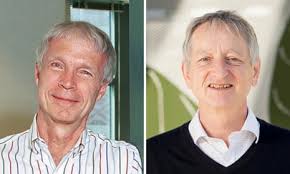STOCKHOLM: Two pioneers of artificial intelligence John Hopfield and Geoffrey Hinton won the Nobel Prize in physics Tuesday for helping create the building blocks of machine learning that is revolutionising the way we work and live but also creates new threats to humanity, one of the winners said.
Hinton, who is known as the godfather of artificial intelligence, is a citizen of Canada and the UK who works at the University of Toronto and Hopfield is an American working at Princeton.
“This year’s two Nobel Laureates in physics have used tools from physics to develop methods that are the foundation of today’s powerful machine learning,” the Nobel committee said in a press release.
Ellen Moons, a member of the Nobel committee at the Royal Swedish Academy of Sciences, said the two laureates used fundamental concepts from statistical physics to design artificial neural networks that function as associative memories and find patterns in large data sets.
She said that such networks have been used to advance research in physics and “have also become part of our daily lives, for instance in facial recognition and language translation.” Nobel announcements will continue with the chemistry physics prize on Wednesday and literature on Thursday. The Nobel Peace Prize will be announced Friday and the economics award on October 14.
Moons, a Nobel committee member, mentioned AI’s flipside, saying that “while machine learning has enormous benefits, its rapid development has also raised concerns about our future. We carry the responsibility for using this new technology for the greatest benefit of humankind.”


